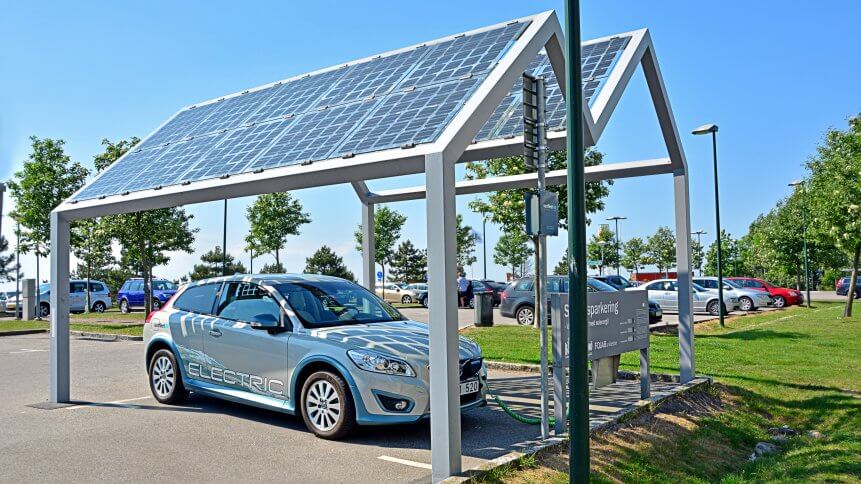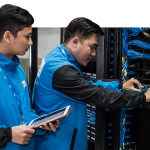Is solar power a good investment for your business?

As advances with data ramp up power usage in the server room, and companies face increasing pressure from their customers to prove themselves ‘green’, progressive thinking organizations across all industries are increasingly exploring ways to cut their carbon footprint, and drive cost-saving operational efficiencies at the same time— one of those lies in solar power.
Allowing individuals and companies to deduct 30 percent of the cost of installing a solar energy system from their taxes, the US passed the solar Investment Tax Credit (ITC) in 2006 and saw a wave of investments in green technology. While US organizations can expect to see a decrease of the credit after 2019, it’s not deterring investments as the technology continues to be further developed.
As it advances, solar technology is dropping in price and becoming more productive, which is attracting continued interest among businesses looking to cut down on costs. In Europe, researchers from the Institute for Advanced Sustainability Studies (IASS) revealed that solar and wind energy could produce up to four times the power needed by Europe.
Besides producing enough energy for an entire continent, renewable energy can lower unemployment rates and improve the economy. Continued adoption of solar will require workers to manufacture, transport, and install these newly developed energy products.
Clearly, the impact solar technology has on both the environment and economy still looks bright.
Solar is a minimalist energy
One of the key draws of solar technology is cost-saving. Operational and maintenance fees are minimal, while solar energy is unlimited and free, investment in a good solar panel would be the main concern for many organizations. Reports from Bloomberg New Energy Finance stated the cost of large-scale static solar panels is predicted to decrease by 41 percent— a “game-changer” for many aiming to adopt green technology.
A number of large organizations are turning to operate full scale on renewable energy. One factory owned by multinational tech firm ABB in Germany is able to produce enough solar energy to operate independently and even have a surplus of energy (14 percent more than needed) which it can store separately. The solar photovoltaic system produces enough electricity each year to power 340 homes. ABB calls the site, which manufactures electrical equipment, “CO2-neutral”.
YOU MIGHT LIKE

How machine learning is helping green industry
Reliable, renewable and revolutionary solar technology
Several concerns of a solar energy powered plant include not having sufficient power to operate during the night or during seasons with short daylight hours. However, these concerns are in the past and it is no longer a question of reliability since batteries integrated with solar panels are becoming more efficient and affordable. Batteries can act as reservoirs for businesses to store excess energy and convert them into electricity when needed. Alternatively, businesses can sell surplus energy to power grids, earning some profit.
The Bloomberg New Energy Finance also reports the cost of battery technology could be half the price by 2030. Possibly, overtaking the preference for cheap gas in countries like the US.
Going green can go a long way in investment
When a business runs on solar energy, integration of other solar-powered tools would be easier as well. Besides that, saving on electricity from the grid means organizations are free to explore other forms of renewable energy like wind, which is equally cost-effective.
The investment in various renewable energy can help businesses stay in line with the developments of green technology. As a result, they can expect to see a rise in efficiency and lowered operating costs.
Deloitte’s headquarters in Amsterdam is a model of innovative green office space. The establishment prides itself with requiring “70 percent less electricity than the typical office building” with its high-efficiency solar panels generating more electricity than needed.
In a bigger picture, the low startup costs, feasible maintenance of solar equipment and reduction in utility cost are evidence of a good investment made that cuts costs overall.









